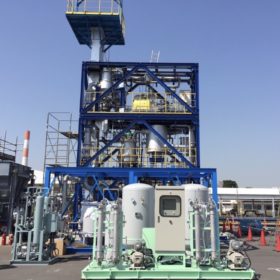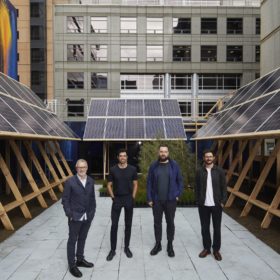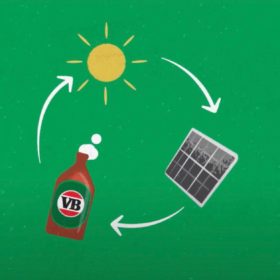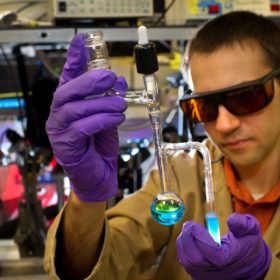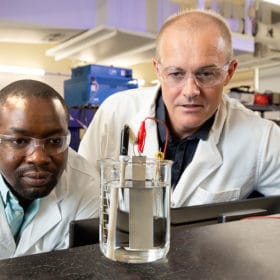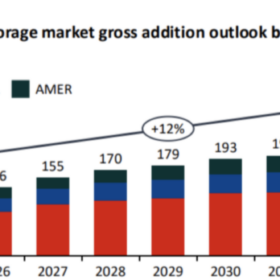The Hydrogen Stream: Projects move forward in China, Japan, Australia and across several European countries
Sinopec wants to build 1,000 hydrogen refueling stations by 2025. Ways2H is building a facility in the Tokyo area that will convert daily 1 ton of dried sewage sludge into 40-50 kilograms of hydrogen for fuel cell mobility and power generation. Ørsted wants to deploy two renewable hydrogen production facilities for a total of 1 GW by 2030. Wacker Chemie is planning to produce green hydrogen and renewable methanol at its German site.
Let there be light! And the research to harness it
Some of Australia’s most thrilling thinkers are scientifically investigating the applications of light and developing new light-absorbing materials. Like human investment in space travel the dedication to solar research is paying back beyond its remit. pv magazine talks to one far-reaching centre of excellence in the field.
Saturday read: New pathways in flexible thin film
Having picked up GBP 5.8 million ($8 million) in a series of investments, U.K.-based Power Roll is pushing ahead with pilot production of an innovative new thin film with which it can manufacture both solar modules and capacitors. In the future, the design could also bring the potential for solar generation and energy storage within a single lightweight device.
Here’s what Biden’s infrastructure bill offers solar and cleantech
The $2 trillion package includes a proposed 10-year extension of the ITC and PTC and calls for further incentives to add transmission capacity. Most solar advocates liked it, but one nonprofit panned it as being too industry-friendly.
Solar steals the show at Melbourne Design Week
An independent exhibition brought to Melbourne Design Week by a group of 15 of the city’s top architectural firms demonstrates the blueprint for Melbourne’s transformation to “A New Normal”. “A New Normal” is a plan to transform Greater Melbourne into a self-sufficient city by 2030.
Solar earns the thirst, you drink the beer – new platform lets you trade PV for VB
Iconic Australian beer Victoria Bitter has partnered with Diamond Energy and Power Ledger to develop Solar Exchange, a blockchain-enabled platform that allows residential PV owners to exchange their excess solar for cases of beer. This is not an April Fool’s prank, miracles do happen, stay calm and exchange your excess solar for slabs!
Australian cleantech startup competition draws $50,000 grant for winner
A $50,000 development grant will be awarded to the winner of this year’s national ClimateLaunchpad competition, which aims launch early-stage cleantech startups into the market.
The Hydrogen Stream: Siemens targets $1.50/kg by 2025, BP and Saudi Aramco bet on blue hydrogen
The German company expects to roll out its in-house proton exchange membrane (PEM) electrolysis technology to implement a gigawatt production of electrolyzers. BP partners with UK gas distributor Northern Gas Networks (NGN) to develop blue hydrogen and Saudi Aramco teams up with Hyundai Heavy Industries to do the same. Italy’s Snam wants to build hydrogen projects in the United Arab Emirates.
Queensland scientists’ remarkable renewably powered carbon capture breakthrough
Scientists from the Queensland University of Technology have made a remarkable breakthrough in carbon capture and storage with a novel electrochemical process which can not only store carbon dioxide in water non-toxically with the power of solar or wind, but also produces by-products including green hydrogen and calcium carbonate, perhaps the key to decarbonising the cement industry.
AGL teams up with Ovo to digitise energy management in Australian households
AGL has announced a joint venture with the UK’s Ovo Energy for exclusive Australian rights to its Kaluza smart energy platform. The partnership comes at a time when grid stability is a hot topic and energy management systems are a key tool for owners of rooftop solar to optimise their investment.
